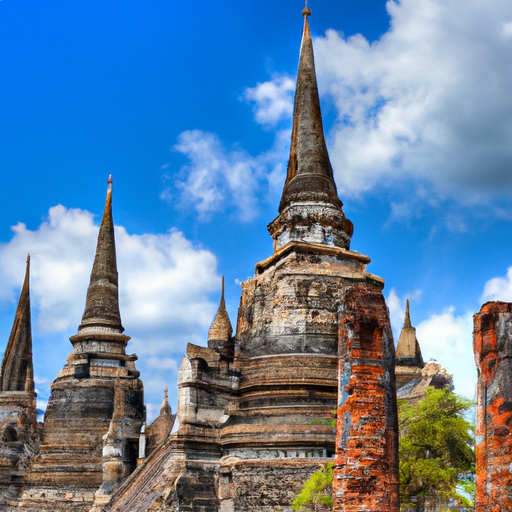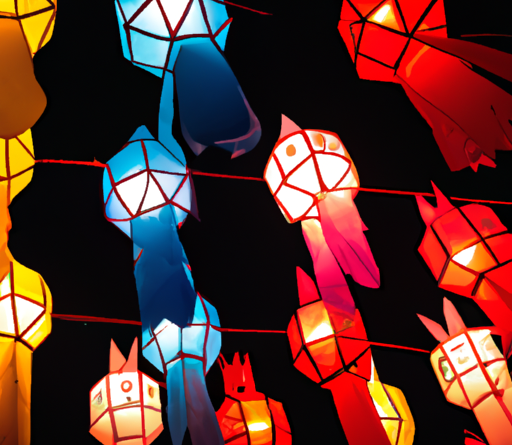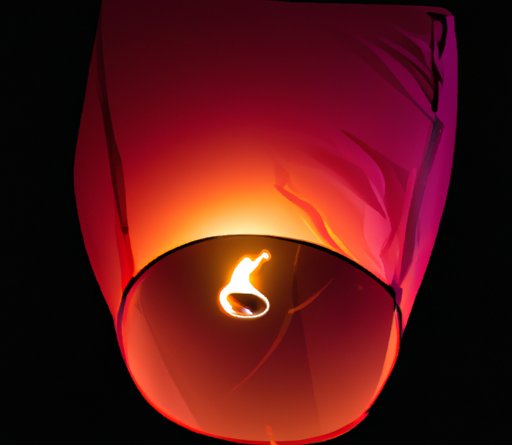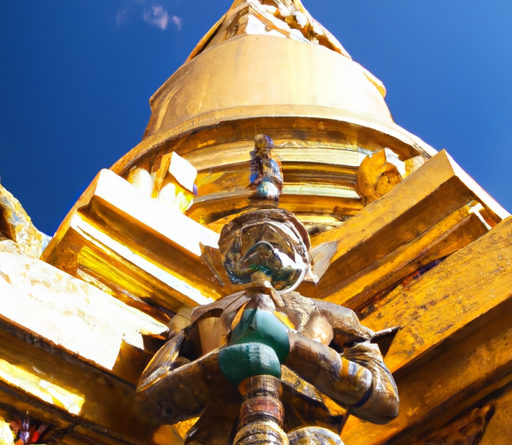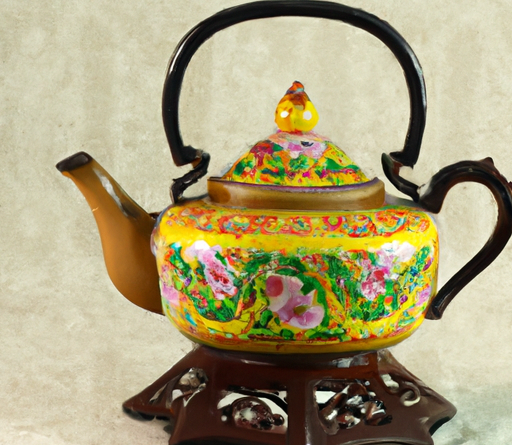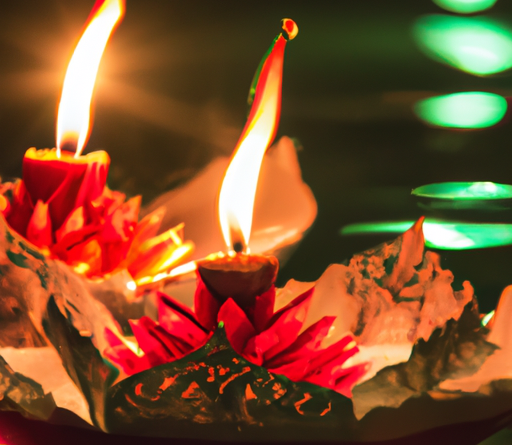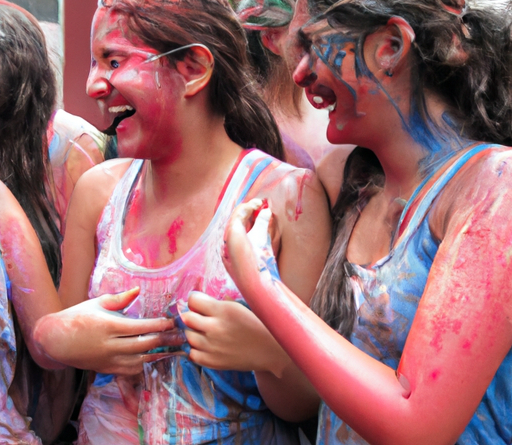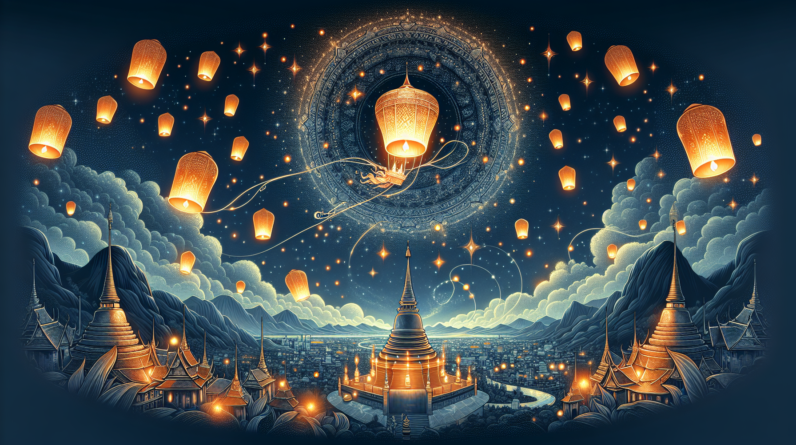
Thailand is renowned for its vibrant and rich cultural festivals that attract millions of tourists from around the world. From the vibrant water fights of Songkran to the mesmerizing lantern release of Yi Peng, these festivals offer a unique and captivating glimpse into Thai traditions and beliefs. But to truly make the most of these cultural experiences, mastering the timing is crucial. Understanding when and where these festivals take place can ensure that you don’t miss out on the magic and excitement that awaits. So, pack your bags and get ready to immerse yourself in the vibrant tapestry of Thai culture as we guide you through the art of mastering the timing for Thai cultural festivals.
The Importance of Timing in Thai Cultural Festivals
Thailand is a country known for its vibrant and colorful cultural festivals. Each festival has its own unique traditions and rituals that have been passed down through generations. But while these festivals are deeply rooted in Thai culture, the timing of the festivals plays a crucial role in shaping the overall experience. In this article, we will explore the significance of timing in Thai cultural festivals, delve into the key festivals celebrated in Thailand, understand festival timing, and provide tips on how to make the most of your festival experience.
Understanding the Significance of Timing
Timing holds immense significance in Thai cultural festivals. Traditionally, these festivals are held according to the lunar calendar, which is based on the cycles of the moon. The positioning of the moon determines the timing of these events, and it is believed that certain lunar phases hold more auspicious energy than others. This belief has been ingrained in Thai culture and is an integral part of the festival experience.
Impact of Timing on Festival Experience
The timing of Thai cultural festivals can greatly impact the overall experience. For example, during the Songkran festival, which marks the Thai New Year, the festival is celebrated in April when the temperatures are soaring. This timing allows participants to cool off and have fun by engaging in the legendary water fights that take place during the festival. The timing also aligns with the beginning of the traditional Thai agricultural calendar, symbolizing a fresh start and new beginnings.
Historical and Cultural Significance of Festivals in Thailand
Thai cultural festivals have deep historical and cultural significance. They are often rooted in religious and spiritual beliefs, and provide an opportunity for the Thai people to pay homage to their ancestors and deities. These festivals also serve as a platform for showcasing Thailand’s rich cultural heritage and celebrating its diverse traditions. Understanding the historical and cultural significance of these festivals can help visitors appreciate and immerse themselves in the unique atmosphere of each event.
Key Thai Cultural Festivals
Thailand is home to a myriad of cultural festivals that take place throughout the year. Here are some of the key festivals celebrated in Thailand:
Songkran – The Thai New Year
Songkran is one of the most popular and widely celebrated festivals in Thailand. It marks the Thai New Year and is known for its water fights and colorful parades. The festival takes place in mid-April and coincides with the beginning of the Thai agricultural calendar.
Loy Krathong – Festival of Lights
Loy Krathong is a festival that celebrates the water goddess and is held on the full moon night of the twelfth lunar month. Participants release small, decorated floats called “krathongs” onto rivers and waterways, symbolizing the letting go of negativity and making wishes for the upcoming year.
Phi Ta Khon – Ghost Festival of Loei
The Phi Ta Khon festival, also known as the Ghost Festival, is a unique celebration held in the Loei province of northeastern Thailand. The festival involves colorful masks, costumes, and processions, and is believed to bring good luck. The exact dates of the festival vary each year, depending on astrological calculations.
Yi Peng – Lantern Festival
Yi Peng is a magical festival of floating lanterns that takes place in the northern city of Chiang Mai. Thousands of lanterns are released into the night sky, creating a breathtaking spectacle. The festival coincides with the full moon of the twelfth lunar month.
Boon Bang Fai – Rocket Festival
Boon Bang Fai, also known as the Rocket Festival, is a vibrant festival celebrated in northeastern Thailand. The highlight of the festival is the launching of homemade rockets into the sky, signaling the coming of the rainy season. The festival usually takes place in May.
Naga Fireballs – Phenomenon on the Mekong River
The Naga Fireballs is a natural phenomenon that occurs on the Mekong River in northeastern Thailand. During the festival, glowing orbs, believed to be the result of underwater volcanic activity, rise from the river. The festival takes place in October and draws crowds eager to witness the mesmerizing spectacle.
Vegetarian Festival – Pure and Devout
The Vegetarian Festival is a religious festival celebrated by the Chinese community in Thailand. Participants observe a strict vegetarian diet for nine days and engage in various ritualistic activities. The festival takes place in October and is held in various parts of the country, including Phuket and Bangkok.
Long Neck Karen Festival – Cultural Extravaganza
The Long Neck Karen Festival is a cultural extravaganza that celebrates the vibrant traditions of the Karen ethnic group. The festival showcases their unique customs, music, and dance, and provides an opportunity for visitors to learn more about their way of life. The festival is held in the Mae Hong Son province in November.
Chiang Mai Flower Festival – A Colorful Display
The Chiang Mai Flower Festival is a vibrant celebration of the city’s floral beauty. The festival features elaborate flower floats, parades, and exhibitions, showcasing the diverse flora of the region. The festival takes place in February and is a must-visit for nature enthusiasts and flower lovers.
Monkey Buffet Festival – Unconventional Celebration
The Monkey Buffet Festival is a fun and unconventional celebration held in Lopburi, a city known for its monkey population. During the festival, an elaborate feast is laid out for the monkeys, who are considered sacred and are believed to bring good luck. The festival takes place in November and attracts both locals and tourists.
Understanding Festival Timing
To fully immerse yourself in the vibrant atmosphere of Thai cultural festivals, it is crucial to understand festival timing. Here are some key aspects to consider:
Dates and Durations
Thai cultural festivals often span multiple days or even weeks. It is important to research and familiarize yourself with the specific dates and durations of the festivals you plan to attend. This will help you plan your trip accordingly and ensure that you don’t miss out on any key events.
Lunar vs. Solar Calendar
Thai cultural festivals are traditionally based on the lunar calendar. This means that the dates of the festivals vary each year and are determined by astrological calculations. It is essential to consult a reliable source or check with local authorities to get the precise dates of the festivals you wish to experience.
Local Variations in Timing
While the dates of Thai cultural festivals are generally consistent across the country, there may be local variations in timing and customs. Certain festivals may have unique traditions or specific rituals that are exclusive to a particular region. It is worthwhile to research and understand these variations to fully appreciate the festival experience in each location.
Historical and Religious Factors
Thai cultural festivals often have deep historical and religious significance. Understanding the cultural and religious background of each festival can help you gain a deeper appreciation for the rituals and traditions associated with them. It is recommended to read up on the history and mythology behind the festivals you plan to attend.
Preparations and Planning
To make the most of your Thai cultural festival experience, adequate preparations and planning are essential. Here are some tips to help you prepare:
Researching Festival Dates
As mentioned earlier, festival dates can vary each year. It is crucial to research and identify the specific dates of the festivals you want to attend. This will allow you to plan your travel arrangements and accommodations accordingly, ensuring that you are in the right place at the right time.
Booking Accommodation and Transport
Thai cultural festivals often attract a large number of visitors, both locals and tourists. It is advisable to book your accommodation well in advance to secure a comfortable and convenient stay. Additionally, plan your transport options, considering factors such as distance, travel time, and availability of public transportation.
Understanding Festival Etiquette
Thai cultural festivals are steeped in tradition and have certain etiquette guidelines that should be followed. Familiarize yourself with the dos and don’ts of each festival to show respect and avoid inadvertently causing offense. It is recommended to dress appropriately, be mindful of cultural sensitivities, and follow the instructions of event organizers.
Identifying Key Events within Festivals
Thai cultural festivals are often packed with numerous events and activities. It can be overwhelming to navigate through the festivities if you are unaware of the schedule and key events. Prioritize and identify the events you most want to experience to ensure you make the most of your time at the festival.
Maximizing the Festival Experience
Attending Thai cultural festivals not only provides an opportunity to witness unique traditions but also allows for an immersive and interactive experience. Here are some ways to maximize your festival experience:
Participating in Rituals and Ceremonies
Thai cultural festivals often involve various rituals and ceremonies. Take the time to understand the significance of these rituals and actively participate if appropriate. Whether it is making offerings, releasing lanterns, or engaging in traditional dances, immersing yourself in these rituals will enhance your understanding and connection to the festival.
Exploring Traditional Food and Drinks
Food plays a crucial role in Thai culture, and festivals offer a fantastic opportunity to sample traditional delicacies. Try the local street food and traditional dishes specific to each festival. You can also explore unique drinks and beverages that are enjoyed during these festive occasions. It’s a great way to delve into the culinary delights of Thailand and discover new flavors.
Appreciating Cultural Performances
Thai cultural festivals are known for their vibrant cultural performances, including traditional music, dance, and theater. Attend these performances to witness the beauty and artistry that is an integral part of Thai culture. Whether it’s a traditional dance performance or a mesmerizing stage production, these performances provide a glimpse into the rich artistic heritage of Thailand.
Interacting with Locals and Fellow Tourists
Festivals bring people together, and Thai cultural festivals are no exception. Take the opportunity to interact with locals and fellow tourists. Engage in conversations, learn about their experiences, and share your own. This will not only enrich your festival experience but also allow you to make new connections and forge lasting friendships.
Dos and Don’ts for Festival Goers
When attending Thai cultural festivals, it is important to be mindful of cultural sensitivities and follow certain guidelines to ensure a respectful and enjoyable experience. Here are some dos and don’ts for festival goers:
Dress Appropriately and Respectfully
Thai cultural festivals often have certain dress codes and expectations. It is important to dress modestly and respectfully, especially when visiting religious sites or participating in sacred rituals. Avoid wearing revealing or inappropriate attire that may cause offense or disrespect local customs.
Be Mindful of Cultural Sensitivities
Thai culture places great emphasis on respect and courtesy. Be mindful of cultural sensitivities and avoid engaging in behavior that may be considered disrespectful or offensive. Remember to remove your shoes when entering temples or other sacred spaces, and always ask for permission before taking photographs, especially of individuals or religious icons.
Follow the Instructions of Event Organizers
Event organizers play a crucial role in ensuring the smooth running of festivals. Follow their instructions and guidelines regarding safety, crowd control, and any specific rules or regulations. This will not only contribute to the overall organization of the event but also ensure the safety and well-being of all participants.
Avoid Engaging in Offense or Spoiling the Atmosphere
Thai cultural festivals are joyful and celebratory occasions. Avoid engaging in behavior that may spoil the atmosphere or offend others. This includes excessive drinking, rowdy behavior, or any form of disrespect towards participants or religious symbols. Remember to be considerate and enjoy the festivities in a positive and inclusive manner.
In conclusion, timing plays a significant role in Thai cultural festivals. Understanding the significance of timing, learning about the key festivals celebrated in Thailand, and preparing and planning for the festivals can greatly enhance the overall experience. By maximizing your festival experience, respecting local customs and etiquette, and immersing yourself in the unique traditions, you can create lasting memories and a deeper appreciation for Thai culture. So, embrace the vibrant colors, immerse yourself in the rituals, and let the magic of Thai cultural festivals unfold before your eyes.
